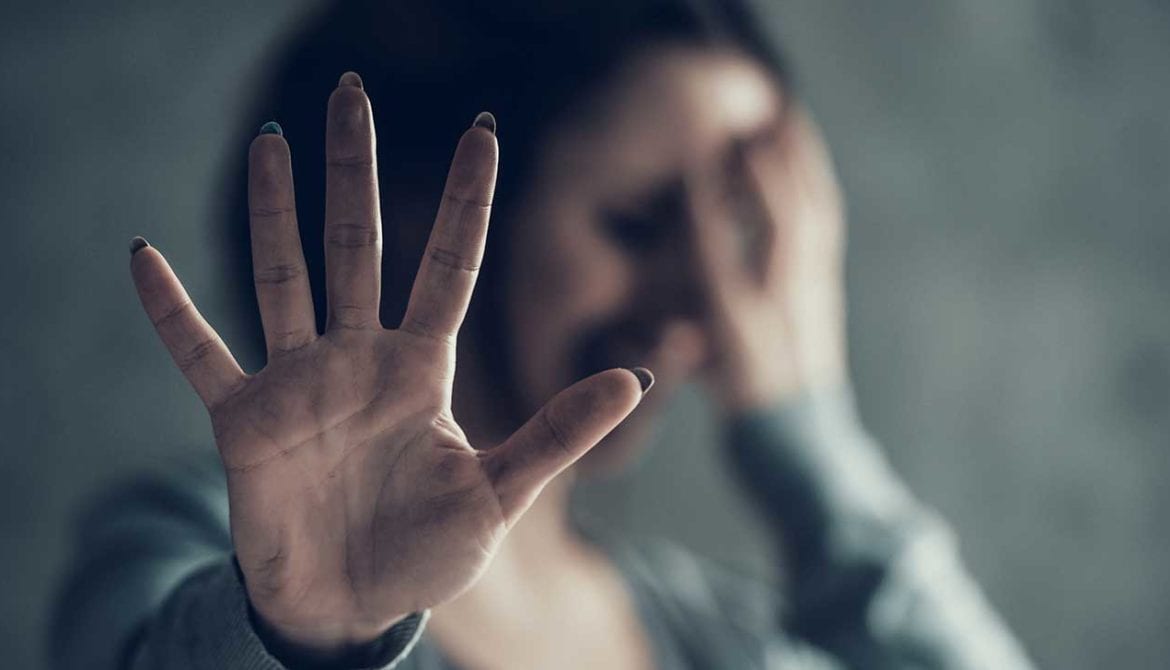There are ways to receive treatment for yourself if you’ve been a victim of sexual abuse. If you are in urgent danger, dial 911, speak with a friend or family member, or dial a crisis hotline. If you have been the victim of abuse, you may be dealing with a great deal of emotional distress. Therapy and support groups can be helpful in the recovery process from sexual abuse because it can be difficult and lengthy.

Spotting Sexual Abuse
Identify signs of abuse in adults.
Traumatic memories from childhood can persist into adulthood, posing a health risk to the victim’s physical and mental well-being. The following are some of the most typical signs that a person was molested as a child:
- fearful reactions to remembrances of the assault
- feeling apprehensive and uneasy
- having flashbacks of the assault
- suffering from recollections of the attack
- feelings of shame, rage, and/or depression that do not go away
- a low self-esteem
- having difficulties in a romantic relationship
- interest in sex fades
Watch for signs of sexual abuse in teens.
Teenagers have similarities in how they may respond to sexual abuse as well. The following are some typical warning indicators in teenagers:
- self-harming (cutting, burning)
- an unclean living environment
- taking drugs and/or alcohol to excess
- acting in a promiscuous manner
- evading capture and fleeing one’s family
- experiencing depressive or anxious symptoms
- attempting self-destruction
- being apprehensive of intimacy or proximity
- eating disorders, such as anorexia and bulimia
Learn how to recognize the signs of sexual abuse in children.
Children’s reactions to sexual abuse vary, however there are several markers that can help you spot child sexual abuse.. There are a few things to keep an eye out for:
- Nightmares or other forms of sleep disturbance, such as a shift in sleep patterns,
- significant adjustments to one’s diet or appetite are required.
- rapid emotional shifts
- plays, writes, draws, or speaks in a way that suggests at abuse
- has an abnormal dread of a specific person or location
- Discusses having a new, older friend but refuses to divulge any information about this friend
- who, for no apparent reason, receives cash, gifts, or toys from others
- having an aversion to one’s own body or self
- seems to have a working grasp of sexual practices of an adult age level.
The aftermath of rape and sexual trauma
Our society is riddled with instances of sexual violence. In the United States, about one in five women will be raped or sexually assaulted throughout her lifetime, frequently by someone they know and trust, according to the CDC. It’s even greater in various Asian, African and Middle Eastern countries. Many men and boys are victimized by rape and other forms of sexual assault every year, too.
Regardless of age or gender, sexual assault has a far-reaching effect on the victim’s mental and emotional health. Becoming a victim of sexual assault can be life-altering; it can cause you to suffer from nightmares and flashbacks as well as a deep sense of humiliation. There’s no longer a sense of security in the globe. You’ve lost faith in other people. You have no faith in yourself. You may wonder if you’re being irrational, or if you’re even sane. To blame oneself for what happened or see yourself as “dirty” or “damaged goods” is a common misconception. Isolation makes closeness impossible in relationships. Survivors of rape often experience post-traumatic stress disorder (PTSD), anxiety, and despair.
The feelings you’re having are a typical reaction to trauma, so don’t ignore them. Isolation, shame and self-blame are only symptoms of a deeper problem. As terrible as the situation may appear, these advice and practices can help you come to grips with what happened, restore your sense of safety and trust, learn to heal, and move on with your life.
Getting Help
Call emergency services if you are in immediate danger.
Do anything you can to keep yourself as far away from the perpetrator as possible, then dial 911 to receive aid. If you can, get out of the house and into the world. There’s nothing you can do if you don’t have a place to hide.
Understand what qualifies as sexual abuse.
Abuse of a child’s sexuality may be repeated or isolated. As a result, determining what constitutes abuse can be challenging. Understanding what constitutes sexual abuse or assault might help you respond in a more appropriate fashion. For example, you could think that a spouse can’t sexually abuse a partner. That’s not necessarily true. It’s a misconception, yet it can keep individuals from obtaining the treatment they need. When determining if you have been sexually assaulted, ask yourself the following questions:
- Have you been sexually harassed or had unwelcome physical contact with another person without their express consent?
- Despite your repeated requests that they stop, have you had sex with someone who pressured you into it? Making threats or making you feel terrible for saying no are examples of this.
- Do you frequently find yourself under the power of another person, either physically or psychologically? As an example, this could entail making you fear or guilty about leaving them or coercing you into having intimate contact with other people you don’t wish to have intimate touch with.
Talk to someone who cares about you.
The best way to get help is to talk to someone who you know and trust. Sexual predators know that if you don’t speak out, they can take advantage of you. However, you can break the pattern of abuse by telling someone what has been happening to you. You should inform someone about this as soon as you can. It has been shown that forming a strong support network around yourself can be extremely beneficial in dealing with the repercussions of sexual assault. The following are some pointers for enlarging and solidifying your network of allies:
- It may be uncomfortable at first, but don’t be afraid to accept invites to social activities.
- Get out there and meet new people. Make the first move and get in touch with someone.
- Become a member of university and community organizations, participate in resident hall or campus events, or organize family gatherings.
- Introduce yourself to the individual sitting next to you in class or at a neighborhood event and start a discussion. You could be making a new acquaintance.
- Consider the interests of others when you speak. Listen attentively.
Call a hotline for help.
Call a sexual abuse hotline for support if you’re afraid to speak up about someone you know. A local domestic abuse facility, for example, may be able to provide you with one-on-one counseling. These are some of the hotlines you can call:
- 800-362-5454, Ext. 7804, Safe Path: 608-392-7804 There is no cost or obligation to use Safe Path’s services.
- RAINN’s National Sexual Assault Hotline: To get in touch with the nearest rape crisis center, dial 1-800-656-HOPE (4673).
- 1 877 739-3895, the NSVRC’s toll-free hotline.
Dealing with Emotional Pain
Consider seeking counseling.
Even if you are no longer subjected to abuse or assault, you may still be dealing with the physiological aftereffects of the abuse. This kind of trauma is analogous to the symptoms of post-traumatic stress disorder (PTSD). Flashbacks from the incident, as well as strong anxiety and panic, might occur at any time in your daily routine. Years after the abuse has stopped, the scars are still there, and many people seek treatment from therapists to overcome the repercussions of their past.
- A mental health counselor or therapist can lend you a supportive ear and provide various techniques to help you overcome the effects of any trauma that you might be holding on to.
- Victims of domestic violence and sexual assault can benefit from counseling services offered by domestic violence organizations.
Realize it is not your fault.
Recognizing that you are or were the victim of sexual abuse is not your fault is one of the most critical first stages towards recognizing and escaping its clutches. The perpetrator’s acts or the way you’re treated by those you tell may cause you to feel guilty or ashamed, but it’s crucial not to allow this to deter you from informing others and seeking treatment for yourself. Assault or abuse by another person is never your fault, and it’s vital to recognize that
- Abusers are motivated by a desire to harm others. They took advantage of you no matter how fragile or ignorant you may have been.
- Abusers have the ability to play mental games with their victims. There is a risk that they will influence you to believe that you are unworthy of love and affection.
Show yourself some compassion.
It may take some time before you feel like yourself again after being the victim of an assault or other forms of abuse. During this period, you may feel frustrated, but it is crucial that you don’t take out your displeasure on yourself. Resolve to give yourself time to heal and that it will be a difficult journey to do so.
- A friend might be going through the same thing. Take into consideration the amount of time and what you’d tell them if they were to recover. Empathy may be extended to oneself, so give it a shot.
Give yourself time to cry and be upset.
It’s only natural that you’re dealing with challenging emotions as a result of anything terrible that happened to you. Allow yourself to feel sad or angry. Allow yourself to feel rage, grief, perplexity, and all other types of feelings. The healing process includes this.
Spend time with people you love.
Seek for the individuals in your life who are most meaningful to you, the ones who make you happy and comfortable. Spend time with them by picking up the phone or going to the kitchen. The support of others will help you heal.
Write about your thoughts and feelings.
Writing about what happened to you can help you start expressing your anger and sadness about it. Begin writing in a journal, even if it’s just a few sentences a day. You can write about anything that comes to mind. Some people even gain by talking about the abuse they’ve been subjected to.
Reach out to others who have also been abused.
You’ll need to maintain talking to supportive friends and family members as you work through your recovery. Joining a group for survivors of sexual abuse can help you build a support network of like-minded individuals. As a location to share your story and hear others’ stories, these organizations might help you understand that you’re not the only one going through the same thing.
Make decisions to regain control.
Having trouble making decisions or feeling like you don’t have control over your situation is rather typical. Making decisions about your rehabilitation and future is the best way to reclaim some control over your life. Decide how you’re going to respond to the circumstance after gathering as much information as you can.
- If you want to file a rape or domestic violence case, you should hire an attorney to assist you.
- Choose a doctor who can help you obtain treatment if you have a STI or an injury.
- Selecting a therapist to assist you in your emotional rehabilitation is a wise decision.

Myths and facts about rape and sexual assault
By dispelling victim-blaming stereotypes about sexual abuse, you can begin the process of healing from the trauma that has been experienced.
Myth:
A rapist can be identified by his appearance or demeanor.
Fact:
Rapists might be difficult to identify. Many look to be entirely normal, affable, charming, and non-threatening in their appearance.
Myth:
If you didn’t fight back, you probably didn’t think it was as horrible as you thought.
Fact:
It’s incredibly normal for victims to freeze in the face of a sexual attack. Once your body and mind have been shocked, it is impossible to move, speak or think clearly.
Myth:
Victims of rape “beg for it” through their appearance or behavior.
Fact:
The crime of rape is one that occurs when there is a window of opportunity for it to be committed. Study after study has shown that the vulnerability of the victim is more important than the attractiveness or flirtatiousness of the victim.
Myth:
A common cause of date rape is an error in judgment.
Fact:
Date rapists frequently claim that the assault was the result of a drunken blunder or misunderstanding. However, statistics show that rapists who commit date rape are almost universally repeat offenders. It is common for these men to ply their victims with drink before raping them.
Myth:
Having sex with someone isn’t raping if you’ve done it previously.
Fact:
Your consent to sexual activity doesn’t mean that you have to give up control of your body indefinitely. When a lover or spouse coerces you into sex, it’s rape, even if you don’t want to engage in it.
What if the perpetrator is part of my family?
As a parent, it can be difficult to learn that your child has been harmed by someone you know and trust. You may feel a range of emotions that others can’t relate to in this situation. No one has the right to invalidate your feelings, but you must find a method to control these feelings in order to put your child’s safety first. Non-offenders’ experiences may include the following:
- Anger at the child, especially if the culprit is your partner, for disrupting your household.
- anger at the criminal for damaging your child as well as breaching your confidence
- Feelings of remorse for not being aware of the abuse, or for still harboring feelings for the abuser.
- Providing support for the child who has been abused while also trying to safeguard your other child might be difficult if the person who has done them damage is another one of your children.
- Parental self-doubt: losing faith in your own judgment or talents
- When a family member who did harm is no longer a part of the family, there are practical concerns about finances and day-to-day existence.
- you begin to feel a sense of loss for the family member who has injured your child
How can I report the abuse?
- 911 should be called immediately if your child is in danger.
- Contact your local sexual assault support provider by calling the National Sexual Assault Hotline at 800.656.HOPE (4673).
- You can reach a trained volunteer at the Childhelp National Abuse Hotline at 800.4.A.CHILD(4454) at any time, 24 hours a day, seven days a week.
- Check out RAINN’s State Law Database to find out more about your state’s required reporting laws.
Recovering from rape or sexual trauma
Step 1: Open up about what happened to you
To admit that you were raped or sexually assaulted might be a very tough thing to do. There has a negative connotation. It might make you feel soiled and vulnerable. It’s also possible that you’re terrified of what others may think. Are you going to get scolded? Observe you in a new light? Downplaying the incident or keeping it a secret seems like a more convenient option. Staying mute only reinforces your sense of victimhood and deprives you of support.
Speak to a person you can rely on. You may think that because you haven’t talked about it, the rape never happened. But if you’re avoiding the truth, you won’t be able to recover. Shrouding yourself simply serves to exacerbate your humiliation. Opening up might be terrifying, but it is also liberating. There is a danger, though, of revealing too much too soon to those you don’t know well. The finest person to have by your side is someone who is calm, understanding, and supportive. Talk to a therapist or a rape crisis hotline if you don’t have anyone you can trust.
Try to shake off the feeling that you are powerless and isolated. Experiencing trauma makes you feel helpless and exposed. Keep in mind that you are capable of overcoming difficulties if you have faith in your own inner resources and abilities. You can regain your sense of power by helping others: volunteer your time, donate blood, reach out to a friend in need, or volunteer for a charity of your choice.
Join a rape or sexual abuse survivors’ support group. Being a part of a support group can make you feel less alone in your struggles. Their advice on how to deal with symptoms and move toward recovery is vital. If you’re unable to locate a local support group, consider joining one online.
Step 2: Cope with feelings of guilt and shame
It’s possible to feel guilty or ashamed even though you know you had nothing to do with the rape or sexual assault. These emotions can surface right away or years later, depending on how long it has been since the assault occurred. You’ll be able to accept your lack of responsibility much more easily once you’ve accepted the reality of what happened. Because you weren’t the one who initiated the attack, you have nothing to be ashamed of.
Misconceptions like this might lead to feelings of guilt and shame.
You were powerless to prevent the onslaught. It’s easy to second-guess yourself after the fact. The brain and body are in shock during an attack, though. You’re unable to think straight. Many people complain that they are “frozen” in their thoughts and actions. Take it as a sign of strength, not weakness. You did your best in the face of adversity. If you had been able to halt the attack, you would have done so.
A person you “shouldn’t” have trusted has betrayed you. Following an assault by someone you know, trust is one of the most difficult things to overcome. To begin questioning yourself and wondering if you missed any red flags is quite understandable. Just keep in mind that the only person to blame is your assailant. Don’t berate yourself for thinking that your attacker was a decent person because of your assumption that they were. Rather than you, your assailant should be the one to feel terrible and embarrassed.
You were either intoxicated or naive. The perpetrator is solely liable for the assault, regardless of the circumstances. You didn’t ask for it, and you didn’t deserve it. The rapist should bear the brunt of the blame.
Step 3: Prepare for flashbacks and upsetting memories
When something stressful happens, your body goes into “fight-or-flight” mode for a short time. As soon as the threat is gone, your body relaxes. Rape, on the other hand, might leave your neurological system permanently on high alert. When it comes to minor things, you’re hyperaware. Many rape survivors have experienced this.
Flashbacks, nightmares, and intrusive recollections are particularly prevalent in the first several months following an assault, especially in the immediate aftermath. Post-traumatic stress disorder (PTSD) symptoms might continue significantly longer if your nervous system remains “stuck” in the long term.
In order to alleviate the distress caused by unpleasant memories and flashbacks:
Try to foresee and prepare for potential stressors and triggers. Anniversary dates; individuals or places that are linked to rape or memory; and certain noises or odors are common triggers for rape survivors. Having a clear understanding of what causes you to become agitated will help you better grasp what’s going on and take efforts to calm down.
Don’t ignore the warning signs in your body. It’s easy to recognize signs of stress and anxiety in your body and mind. There are many signs that you’re having a panic attack, such as tense muscles, a racing mind, a shortness of breath, dizziness, and nausea.
Take immediate steps to self-soothe. As soon as you notice any of the following symptoms, it’s imperative that you take immediate action to calm yourself down. As one of the quickest and most efficient strategies to alleviate anxiety and panic, slowing down your breathing is an essential part of the process.
Tips for Dealing with flashbacks
Flashbacks are not always avoidable. While it is possible to lose track of the present and feel as though the sexual assault is happening all over again, there are ways in which you may take action if this happens.
Take a deep breath and remind yourself that this is all just a recollection. In the end, you emerged unscathed from the ordeal. Using this script, you’ll be able to get started: There are no threats to my safety right now because I’m recalling the rape/sexual assault, but I’m afraid to glance around because I’m afraid of what I could see.”
Focus on the here and now. The use of grounding techniques can assist you in bringing your focus back to the present moment and away from the flashback. When describing your surroundings, name the location where you are currently, the date, and three items you observe when you glance about. For example, tap or touch your arms.
Step 4: Reconnect to your body and feelings
It’s common for people who have been raped or attacked to try to numb themselves or avoid memories of the incident. You can’t, however, dull your feelings only when you want to. You can’t experience joy or self-awareness if you block out the bad feelings. As a result, you become emotionally and physically estranged, allowing you to subsist but not completely live.
Avoiding and numbing yourself in unproductive ways:
I’m physically unable to function. You no longer experience the physical feelings that you once did (you might even have trouble differentiating between pleasure and pain).
You may feel as if you’re watching yourself or the scenario you’re in, rather than participating in it, rather than being a part of it.
I’m having a hard time focusing and remembering.
attempting to fill the void inside oneself by indulging in risky or painful activities or substances.
Using drugs or alcohol in an obsessive manner.
Using fancies, daydreams, or excessive television, video games, etc. as a means of escaping reality.
Feeling detached from the world, the people in your life, and the activities you used to enjoy.
To recover after rape, you need to reconnect to your body and feelings
People, places, and things that formerly brought you joy are now causing you pain.
You’ll feel more secure, confident, and strong when you get back in touch with your body and feelings. You can do this by employing the following methods:
Stylized motion. Harmony can be extremely therapeutic. It’s a great way to de-stress and reclaim control over our physical selves. Dancing, drumming, and marching all function well because they involve both rhythm and movement. The back and forth motions of your arms and legs can even be used while walking or jogging.
Mediation on the present moment in stillness. You can even meditate while you’re walking or eating, since mindfulness meditation can be done anywhere at any time. Focus only on the sensations and emotions you’re experiencing during the current movement. An important part of this process is to observe without judging.
Tai Chi, Qigong, and yoga all fall under this umbrella term. Incorporating these activities into your daily routine will help alleviate symptoms of post-traumatic stress disorder (PTSD) and trauma.
Massage. If you’ve been raped, it’s understandable that you’d be wary of being touched. However, the act of giving and receiving affection and consolation through physical contact is crucial. Massage therapy can help you rediscover the joys of human touch.
Step 5: Stay connected
After a sexual attack, it is typical to feel alienated and isolated from others. As a result, you may find yourself wanting to isolate yourself from friends and family. That being said, staying in touch with your loved ones and living a normal life is still crucial. Your rehabilitation will be greatly aided by the help of others. Keep in mind, however, that receiving support does not necessitate that you discuss or linger on what has transpired in the past. Laughing and having a good time with people you care about may both be therapeutic.
Participate in social events, even if you don’t feel like it at the moment. Do things that have nothing to do with your sexual trauma with other people.
reunite with old acquaintances. Make an effort to reconnect with people who formerly meant a lot to you if you’ve drifted away from them.
Meet new people. Try to establish new pals if you’re alone or far away from family and friends. Join a class or a club to meet others who share your interests, join an alumni organization, or get to know your neighbors or coworkers at your place of employment or in your neighborhood.
Step 6: Nurture yourself
The process of recovery from sexual trauma is one that takes time and effort. When it comes to trauma, it doesn’t go away in a day or two, and it never does. At times, this can make life seem a little more challenging. The good news is that there are a variety of options available to help you deal with the lingering symptoms while also lowering your stress levels.
Rest and re-establish your body’s equilibrium. It’s important to take a break when you’re exhausted and resist the temptation to get carried away by the rush of doing things. Work should not be viewed as a compulsive activity. Meditation and yoga might help you de-stress and unwind if you’re having difficulties relaxing and letting your guard down.
Consume media with discretion. To avoid triggering bad memories or flashbacks, avoid viewing any television show or movie. Things like sexually explicit television shows and movies are included in this category. But you may also want to take a break from social media and other things that are too exciting for a short period of time.
Take care of your physical well-being. When you’re dealing with trauma, it’s even more critical to eat healthily, exercise consistently, and get enough sleep. When it comes to relieving stress and making you feel more powerful in your body, exercise is a great option.
Refrain from consuming alcoholic beverages and other intoxicating substances. Alcohol and narcotics should be avoided as self-medication. Anger and despair are just two symptoms that can be worsened by substance abuse in the wake of trauma. Aside from the fact that it can affect treatment, it can also cause issues at home and in your relationships.
How to help someone recover from rape or sexual trauma?
When a spouse, partner, sibling, or other loved one is raped or sexually abused, it can cause intense feelings and strain on your relationship. You may be furious and irritated, yearning for your relationship to revert to as it was before the assault, or perhaps desire to retaliate against the assailant of your loved one. Your loved one, not additional displays of aggressiveness or violence, needs your patience, understanding, and support right now.
Reassure your loved one that you still care about them and that the assault was not their fault. They couldn’t be held responsible for anything they did or didn’t do.
Allow your partner to open up at his or her own pace. Some sexual assault victims find it difficult to talk about what happened, while others may need to discuss the incident repeatedly. You may feel frustrated or uneasy as a result of this. However, don’t try to persuade your loved one to open up or stop rehashing the past. Instead, let them know you’re available to talk whenever they want. If hearing about your loved one’s assault makes you feel uneasy, talking to someone else can help you put things in context.
Encourage, but don’t force, your loved one to seek help. Many people feel completely powerless after being raped or sexually assaulted. By not pressuring or cajoling your loved one, you might help them regain control. Encourage them to seek assistance, but leave the final decision to them. Take advice from your loved one on how to best assist them.
Demonstrate empathy and use caution when it comes to physical intimacy. It’s common for someone who’s been sexually attacked to avoid physical contact, but it’s also crucial that they don’t believe their loved ones are emotionally distancing from them or that they’ve been “tainted” by the attack. Request permission to hold or touch your loved one in addition to verbally expressing affection. Understand that, in the case of a spouse or sexual partner, your loved one will most likely require time to reclaim control over their life and body before craving sexual closeness.
Make sure you look after yourself. You’ll be able to support your loved one more effectively if you remain cool, comfortable, and focused. Manage your personal stress and seek out help from others.



















